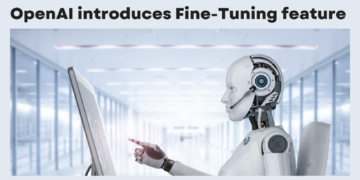Suno is a startup that can be the “ChatGPT” in music creation. The AI model uses Artificial Intelligence (AI) to make music “accessible” to everyone. With its innovative platform, Suno aims to democratize music production, allowing anyone to effortlessly craft professional-level songs with a mere text prompt. This isn’t the first time we are hearing about AI that can make music. There have been AI popstars and music making AI by prominent corporations as well. So what sets Suno apart?
What is Suno?
Suno started from the collective expertise of its co-founders, Mikey Shulman, Keenan Freyberg, Georg Kucsko, and Martin Camacho, all machine-learning experts. Former colleagues at Kensho Technologies, they ventured into AI-driven music creation to explore audio processing. Initially conceptualized as a text-to-speech program called Bark, the AI emerged from the realization that users yearned for a music generator. Thus, Suno embarked on a journey to decode the complexities of audio, particularly music, leveraging techniques similar to large language models like ChatGPT.
Soul of the Machine
“Soul of the Machine” is a special song made by Suno. It’s like a sad blues tune you might hear from a person, but it’s actually created by AI. The song’s words and music were made with just a simple message typed into the program. Even though there’s no real person behind the music, it feels real and emotional, like it has a heart. With its gentle guitar strumming and heartfelt lyrics, “Soul of the Machine” shows how powerful AI can be in making music that touches our hearts and makes us think about what it means to be human in a world filled with technology.
How Suno Overcame the Complexity of Audio
Unlike text or images, audio presents unique challenges in its processing, particularly in the realm of music. The AI grapples with the intricacies of converting continuous waveforms into manageable segments, akin to tokens in text. High-quality audio’s staggering sampling rates demand innovative solutions to compress and reconstruct sound faithfully. Suno’s relentless pursuit of efficiency involves a blend of heuristics, advanced models, and ingenuity. However, the road to mastery remains arduous, with Suno acknowledging the long journey ahead in refining its algorithms.
Legality and Ethics
As Suno ventures into uncharted waters, it faces legal and ethical quandaries inherent in AI-generated content. With OpenAI embroiled in lawsuits over copyrighted material, the AI treads cautiously, refraining from divulging specifics about its training data. By eschewing real artists’ voices and respecting intellectual property, the AI strives to navigate the murky waters of legality. Yet, the possibility of potential lawsuits looms large, making the thin line between innovation and copyright violation apparent.
Suno: AI & the Human Touch
Despite its AI-driven capabilities, Suno remains grounded in the ethos of human creativity. With plans for a recording studio and a focus on fostering musical expression beyond AI, Suno underscores the symbiotic relationship between technology and human ingenuity. As the AI expands its horizons, it champions collaboration, bridging the gap between innovation and tradition.
In the evolving landscape of AI-driven music creation, the AI faces competition from rivals like Google’s Dream Track. Yet, Suno claims that they transcend the mere replication of existing music, envisioning a future where creativity knows no bounds. Suno is gradually but surely inching towards a billion-strong user base.



























